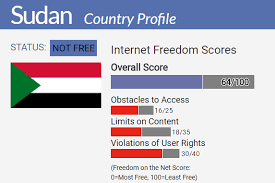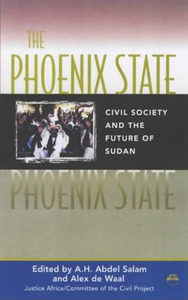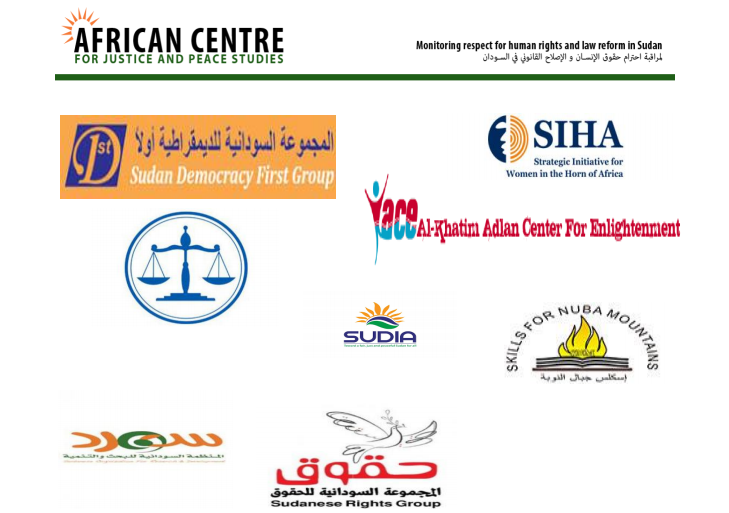At least 13 protesters were killed and several others injured on Monday when the Sudanese military opened fire to break up a sit-in, according to a local doctors’ union, CNN reports:
Protesters had congregated outside the Defense Ministry in Sudan‘s capital Khartoum, opposing the interim military council that has ruled the country since a coup ousted long-time President Omar al-Bashir in April. The Sudanese opposition suspended talks with the ruling body after the crackdown.
“The protesters holding a sit-in in front of the army general command are facing a massacre in a treacherous attempt to disperse the protest,” said the Sudanese Professionals Association (SPA), the group that led the nationwide protests that started in December.
 In the early hours of today, Rapid Support Forces backed by security forces and Police stormed the sit-in area in front of the headquarters of the Sudanese army in the capital Khartoum, said the SPA. “We consider this violation a criminal offence against the Sudanese people,’ it added, and a reversion “to the old regime’s tactics and policies.”
In the early hours of today, Rapid Support Forces backed by security forces and Police stormed the sit-in area in front of the headquarters of the Sudanese army in the capital Khartoum, said the SPA. “We consider this violation a criminal offence against the Sudanese people,’ it added, and a reversion “to the old regime’s tactics and policies.”
Journalist Benjamin Strick, who specialises in verifying footage on Twitter, has shared dramatic videos from Khartoum, where repeated gunfire could be heard, the BBC adds.
“We have halted all political communication and negotiations with the putschist council,” the Declaration of Freedom and Change Alliance, an umbrella group for opposition groups and protest leaders, said Monday. “The leaders of this council are criminally responsible for all the bloodshed that took place since April 11th,” the statement added. The opposition leaders vowed to take the generals to court.
Analysts have long warned that the transition to democracy in Sudan, if it goes awry, risks plunging the country into much greater chaos, The NY Times adds.
 “The crackdown is likely to act as a catalyst for more protests as the violence by the military has assured the public that the T.M.C. is just more of the old Bashir regime with new leaders,” said Sreya Ram, an analyst for The Economist Intelligence Unit, a research group, adding, “Public discontent over the lack of real change in both political power and the economy will ensure unrest continues.”
“The crackdown is likely to act as a catalyst for more protests as the violence by the military has assured the public that the T.M.C. is just more of the old Bashir regime with new leaders,” said Sreya Ram, an analyst for The Economist Intelligence Unit, a research group, adding, “Public discontent over the lack of real change in both political power and the economy will ensure unrest continues.”
Rashid Abdi, an independent Sudan expert, said the transitional council had never intended to hand power to a civilian administration, The FT reports.
“It wants a deal on its own terms, and that was not palatable to the protest movement,” he said. “Instead of compromise it opted for violence and unless it changes tack the risk of escalation is real.”
 The violent repression of the civilian movement is likely to usher in a dangerous new chapter for Sudan’s divided population and sends an ominous message to democratic ambitions in the northern African region, The Wall Street Journal adds:
The violent repression of the civilian movement is likely to usher in a dangerous new chapter for Sudan’s divided population and sends an ominous message to democratic ambitions in the northern African region, The Wall Street Journal adds:
The military sweep on the protest site appeared to be coordinated with dawn raids by a hard-line paramilitary group known as the Rapid Support Forces, or RSF, on opposition figures across Khartoum. Soldiers and paramilitaries surrounded hospitals and hotels housing foreign journalists, preventing them from leaving the building.
The transitional military council “does not want democracy and will try every trick to prolong their stay in power,” said Abdi, a regional analyst formerly with the International Crisis Group. He added that the military crackdown had the support of foreign backers, including Egypt and the Gulf monarchies, which have sent the military council billions of dollars in aid since the ouster of Mr. Bashir.
The Declaration of Freedom and Change announced a general strike and civil disobedience starting Monday. It called on “honorable” members of various security forces to protect the people from the “militias of the putschist council” and to support a civilian transitional authority.








